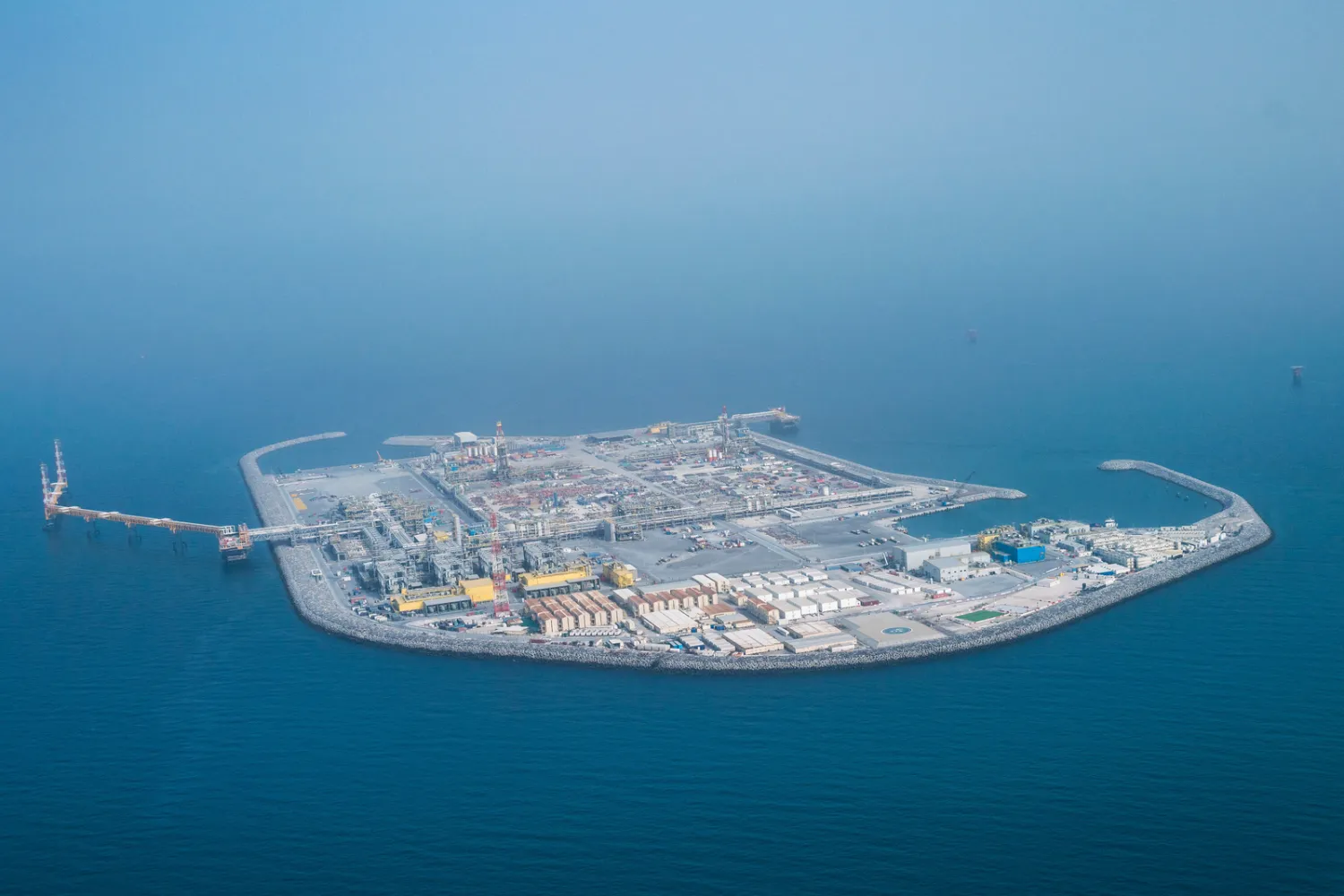UAE announced a $3.6 billion strategic project to significantly decarbonize the offshore production operations of Abu Dhabi National Oil Company (ADNOC).
The innovative project will see the development and operation of a first-of-its-kind high-voltage, direct current (HVDC-VSC) subsea transmission system in the MENA region.
It will power ADNOC's offshore production operations with cleaner and more efficient energy, delivered through the Abu Dhabi onshore power grid, owned and operated by Abu Dhabi National Energy Company (TAQA) transmission and distribution companies.
The project will be funded through a special purpose vehicle (SPV), a dedicated company that ADNOC and TAQA will jointly own with a 30 percent stake each.
It also includes a consortium comprised of Korea Electric Power Corporation (KEPCO), Japan's Kyushu Electric Power Co., and Électricité de France (EDF). Led by KEPCO, the consortium will hold a combined 40 percent stake in the project on a build, own, operate and transfer basis.
The project will strengthen the position of ADNOC and TAQA in driving and leading sustainability efforts and supporting the UAE' Net-Zero by 2050 Strategic Initiative'.
The development is expected to reduce the carbon footprint of ADNOC's offshore operations by more than 30 percent, replacing existing offshore gas turbine generators with more sustainable power sources available on the Abu Dhabi onshore power network.
The progressive and collaborative approach will also drive operational efficiencies and improve system reliability of energy supply while offering the potential for power supply cost optimization.
ADNOC Upstream Executive Director Yaser Saeed al-Mazrouei said that ADNOC is delighted to be collaborating again with TAQA.
"This first-of-its-kind project is a further example of how ADNOC is advancing practical and commercially viable solutions to secure a lower carbon future while driving significant foreign direct investment, and, in turn, cementing Abu Dhabi and the UAE's position as a trusted global investment destination."
TAQA's Group CEO and Managing Director, Jasim Husain Thabet, announced that TAQA is the recognized low carbon power and water champion of Abu Dhabi and one of the top five utilities in EMEA by market value.
"TAQA is pleased to again partner with ADNOC on such an important project that will contribute to the decarbonization of Abu Dhabi's energy industry in such an impactful way."
The transmission system with a total installed capacity of 3.2 Gigawatts (GW) and comprises two independent sub-sea HVDC links and converter stations that will connect to TAQA's onshore electricity grid – operated by its subsidiary, Abu Dhabi Transmission and Despatch Company (TRANSCO).
The project also offers the potential for ADNOC to more effectively utilize its rich gas – currently used to power the offshore facilities – for higher-value purposes, allowing ADNOC to generate additional revenue.









